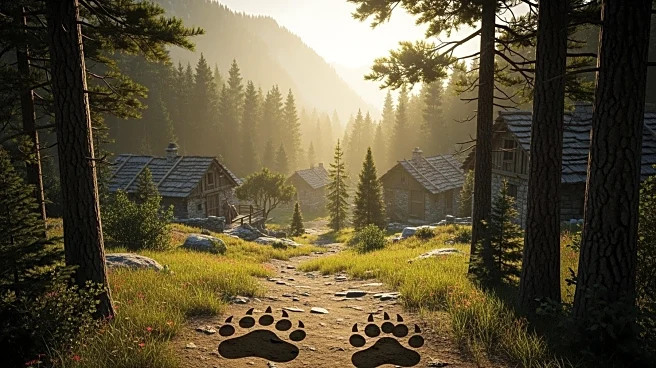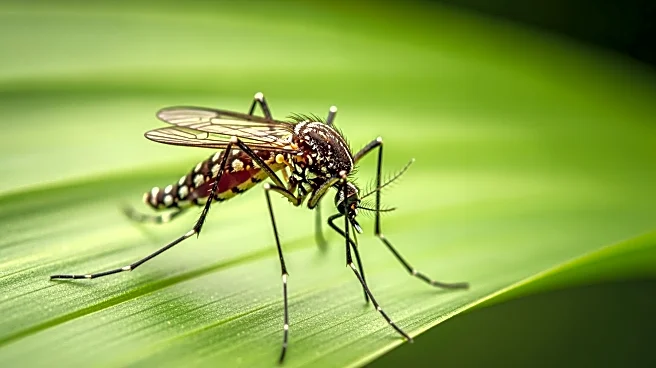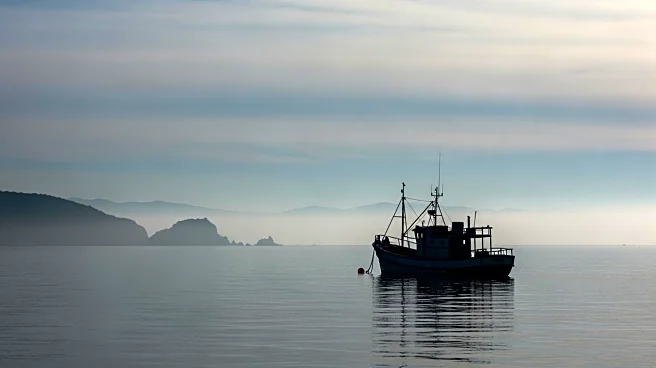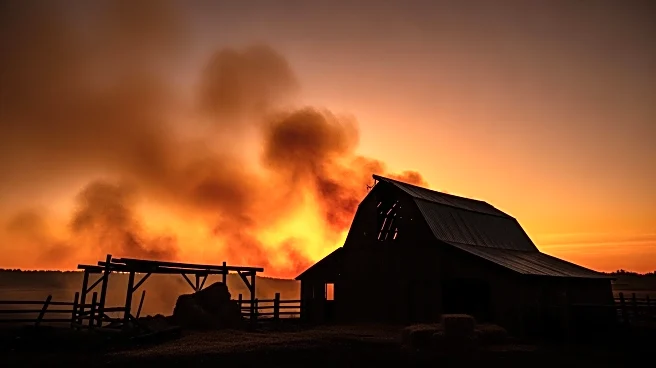What's Happening?
In northwestern Greece, rural communities are experiencing increased encounters with predators such as bears and wolves. The resurgence of these animals is attributed to conservation efforts that have protected them from hunting, leading to a significant
rise in their populations. Environmentalists have welcomed this recovery, but local farmers and residents express concerns over safety and the impact on their livelihoods. The growing predator presence is compounded by an increase in wild boar populations, which have thrived due to reduced hunting, milder winters, and cross-breeding with domestic pigs. These developments have led to more frequent human-animal interactions, some of which have resulted in serious incidents, including attacks on livestock and humans.
Why It's Important?
The situation in Greece highlights the complex balance between wildlife conservation and human safety. While the recovery of bear and wolf populations is a success for conservationists, it poses challenges for rural communities that rely on agriculture and livestock. The increased presence of predators threatens the economic stability of these areas, as farmers face losses from attacks on their animals. Additionally, the rise in wild boar populations presents further challenges, as these animals are considered pests that damage crops. The issue underscores the need for effective management strategies that protect both wildlife and human interests, and it raises questions about the extent of conservation efforts and their impact on local communities.
What's Next?
Local authorities and environmental organizations are exploring measures to mitigate the impact of rising predator populations on human communities. These include strategies to deter animals from approaching populated areas, such as using lights around properties and proper disposal of waste. In some cases, more invasive methods, like capturing and relocating problematic animals, are considered. The situation may prompt discussions on adjusting hunting regulations to manage wild boar populations. As the issue gains attention, it could influence broader conservation policies in Greece and other European countries facing similar challenges.
Beyond the Headlines
The growing predator problem in Greece reflects broader environmental changes, including habitat loss due to wildfires and human encroachment. These factors contribute to wildlife seeking food and shelter in urban areas, leading to increased human-animal interactions. The situation raises ethical questions about the balance between conservation and human safety, and it may prompt a reevaluation of conservation policies to address the needs of affected communities. Long-term solutions will require collaboration between environmentalists, policymakers, and local residents to ensure sustainable coexistence.














